If you are planning to construct your own home, you should be aware that there are two stages involved in the process. You build the grey structure first, after which comes the more expensive part of finishing. When you look at the budget for a top-of-the-line house, you’ll notice that woodwork takes up a significant portion. If you’re looking for a way to save money, you should consider polishing unfinished wooden doors on your own. You will also learn a few tricks of the trade as a result.
Graana.com, Pakistan’s smartest real estate portal, has prepared a guide you can follow to polish raw wood yourself.
Use of Wood Around the House
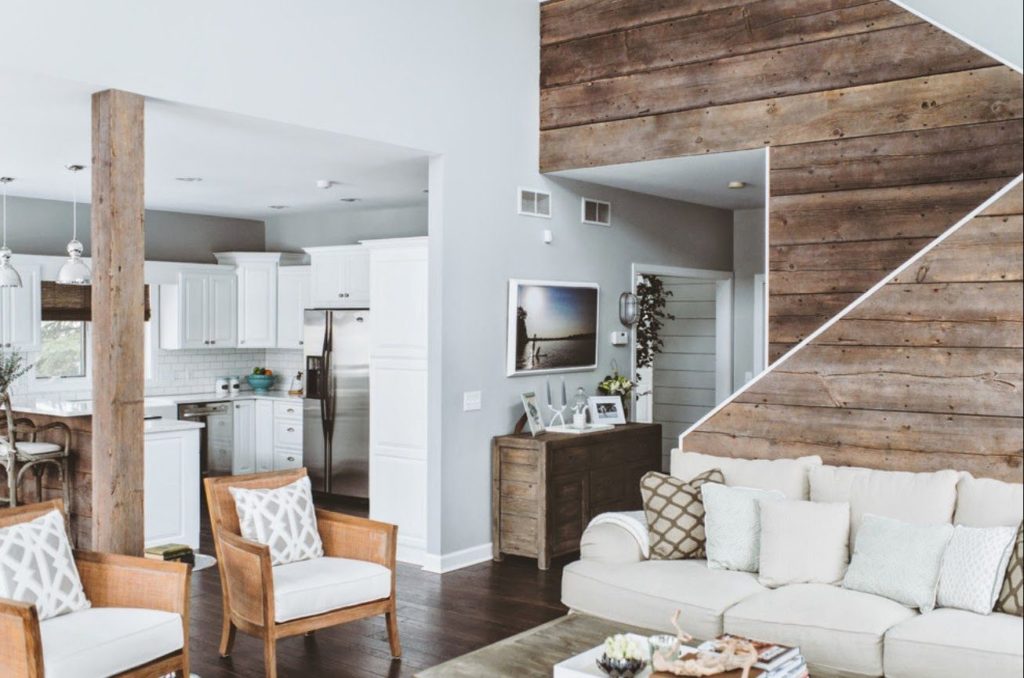
Wood is a versatile material, especially when it comes to its application in a house or office. Interior design companies have used different types of wood to design unique staircases, outdoor furniture, and design different types of doors. Given the unique applications of wood, you need proper knowledge for its upkeep.
Material Required for Polishing Raw Wood
To polish raw wood, you’ll need the following material:
- Kerosene oil
- Spirit
- Lac dana or Lakh dana
- Sina or colouring
- Lacquer
- Sealer
- Thinner
- Plaster of Paris
The Process of Polishing
Once you have all the items required for polishing, you can follow the steps below for polishing a raw wood:
- Sanding
- Apply Lac Dana
- Fill the gaps with plaster of paris
- Identify Color of Wood
- Sealer Application
- Lacquer
Sanding
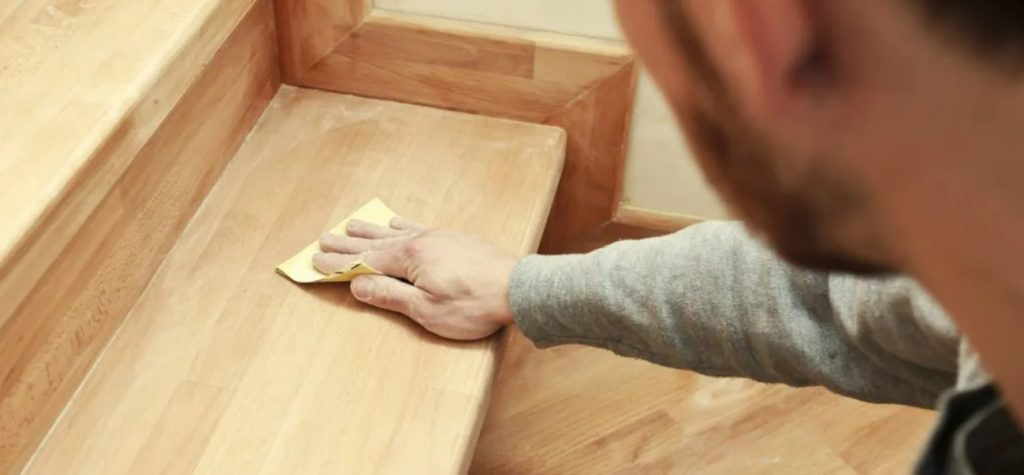
Whether you are polishing the piece of wood for the first time or if you intend to repolish a piece of wood, you cannot apply the colour directly. First, you have to smooth the surface with sandpaper.
Check for nails in the wood and ensure that they are not flush with the surface. Smooth the surface with sandpaper to allow the polish to work. When you are done sanding, there will be no bumps or uneven edges.
Apply Lac Dana
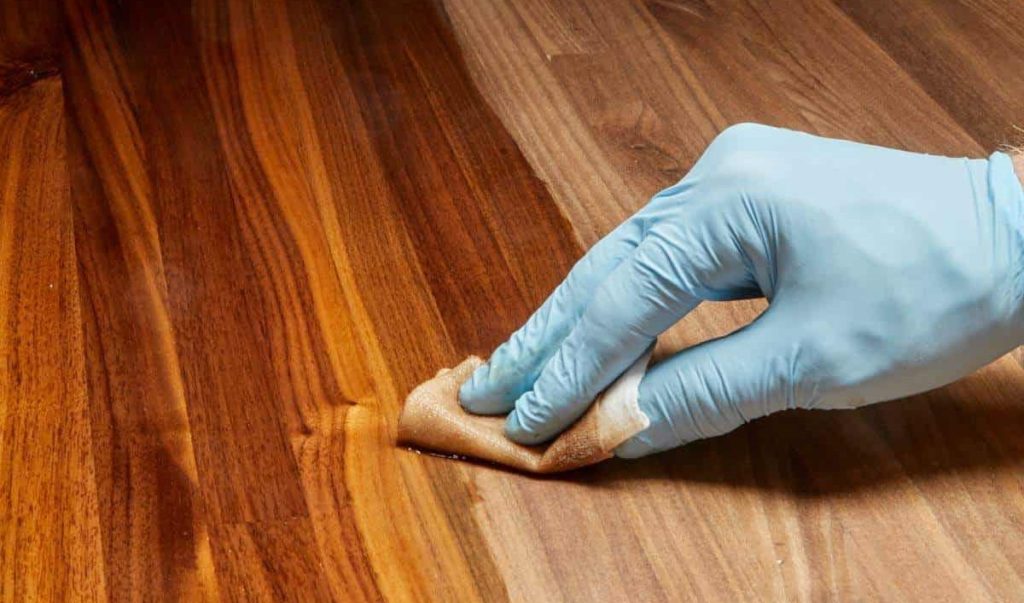
To polish raw wood, you’ll need lac dana (colloquially known as lakh dana or laag dana). Lac dana is a resin generated by female lac bugs on trees. We can start by giving you some background on lac dana. Shellac is scraped from the trees where female lac bugs exude resin in order to form tube-like colonies. Lac insects feed on the tree’s sap and emit sticky lac on a regular basis.
A long tube made of canvas containing raw shellac is cooked over a slow fire to extract lac from raw shellac, which contains both bark shavings and lac bugs. The lac liquefies as it seeps through the canvas tubes and collects in a receptacle, leaving behind bark shavings and lac bugs. After that, the liquefied shellac is spread out in sheets to dry. After that, the flat sheet is shattered into flakes (lac daana) and sold in the market.
Application of the lac dana is the technical part of the process. It is a pricey wood polishing material, thus it’s best to acquire it in modest quantities. It’s available at any paint or hardware store. To liquefy and form liquid shellac, it is dissolved in spirit or alcohol. Shellac is a high-gloss varnish made from a natural primer. Lac dana, which looks like brown grains, can be used to polish unfinished wooden doors. Soak it in bourbon until it becomes liquefied. One coat of lac dana is sufficient.
Fill the Gaps with Plaster of Paris
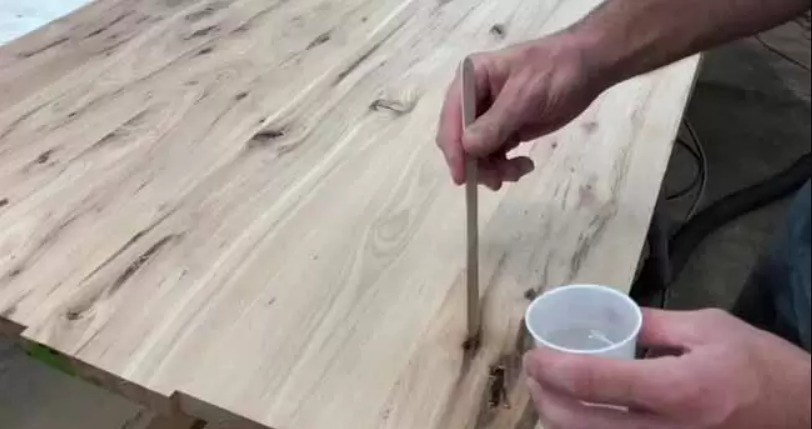
Take a good look at the door. Are there any cracks or crevices that you can see? If this is the case, the cracks must be repaired before the door is polished. A mixture of plaster of Paris should be used to fill any wood cracks. Remember to match its colour with the exact shade of your door.
To complement the original wood colour, you might use brown or yellow paint. A small bit of the plaster of Paris mixture is also recommended. Fill up all the cracks, nail heads, and depressions. Then, using sandpaper, make the surface as smooth as possible. Cracks should be filled and the door should be levelled.
Identify Colour of Wood

To get the proper colour for your door, you can blend yellow sina, red sina, brown sina, or black sina. For instance, if you want to achieve the traditional dark brown colour, combine brown sina (pigment) with black sina. You can also use yellow or brown sina to make a shade that is particularly suitable for cabinets and cupboards. It also depends on whether you wish to maintain the wooden door’s natural colour, or if you would like the door to be finished in mahogany, oak, or walnut. You can also ask at the paint store for guidance.
After choosing the appropriate colours, combine them with kerosene oil and varnish. To acquire identical effects for all of the doors you want to polish, make the colour once. You won’t get the same colour on all doors if you prepare the colour in small quantities. Slight colour changes can completely transform the appearance of your wooden door.
Another thing to keep in mind is that the colour should be mixed the day before the first coat is applied. A mulmul (soft cotton muslin) cloth is used to apply the colour to the wooden door. Polishing raw wood is done by applying the same colour in multiple coats. Apply the sealer after you’ve achieved the desired colour on the wooden door. One of the most significant aspects of polishing raw wooden furniture is the use of abrasives.
Sealer Application
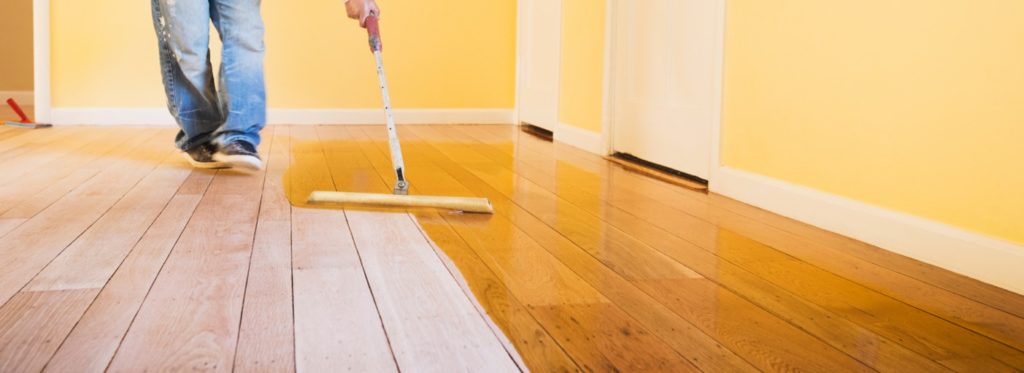
Purchase a sealer from a nearby store and apply it to the wooden door. Keep in mind that the appearance of the finished wooden door is determined by the number of coats you apply. Around 10-15 coatings are applied on average. A spray gun is used to apply the sealer.
After you’ve applied enough coatings of sealer, sand it again using 240 grit sandpaper.
Lacquer
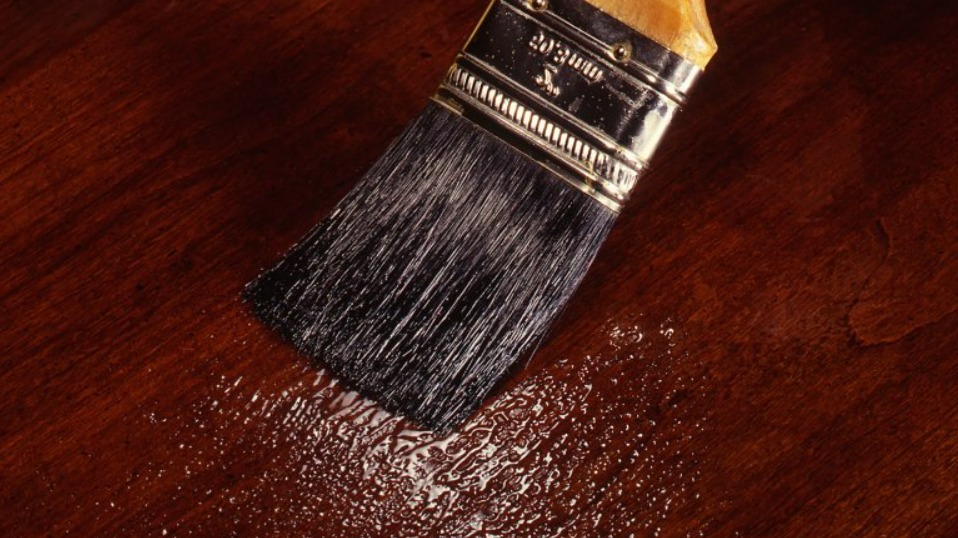
The application of lacquer is the final stage in the polishing of a wooden door. In the market, there are two types of lacquer: one that has a matte finish and the other that has a glossy finish. Choosing between the two is entirely up to you.
Two coats of matte lacquer are required for a matte finish, whereas four coats of glossy lacquer are required for a glossy finish. You’ll need to use a spray gun to apply the lacquer. Allow the polish to dry naturally.
To read more related guides, visit Graana.com.




